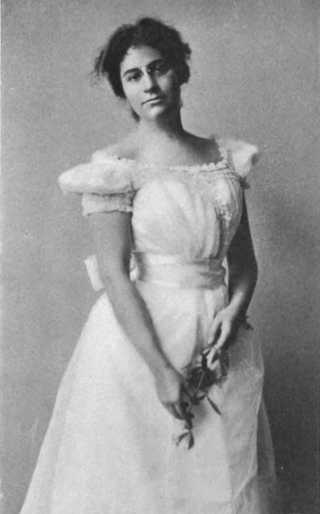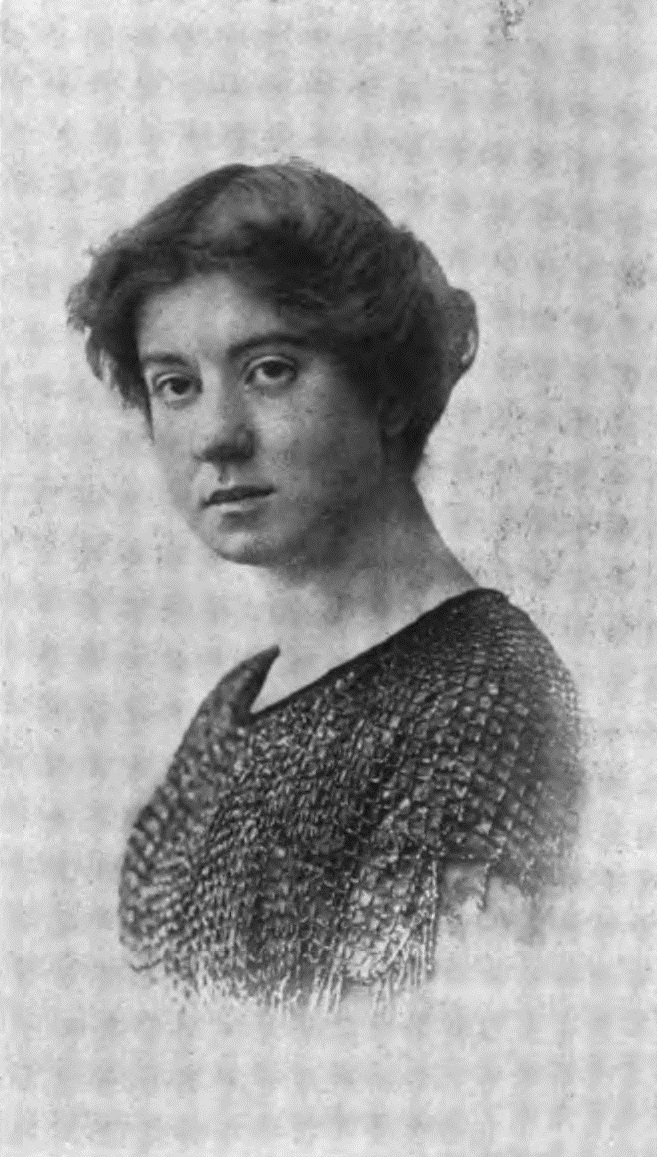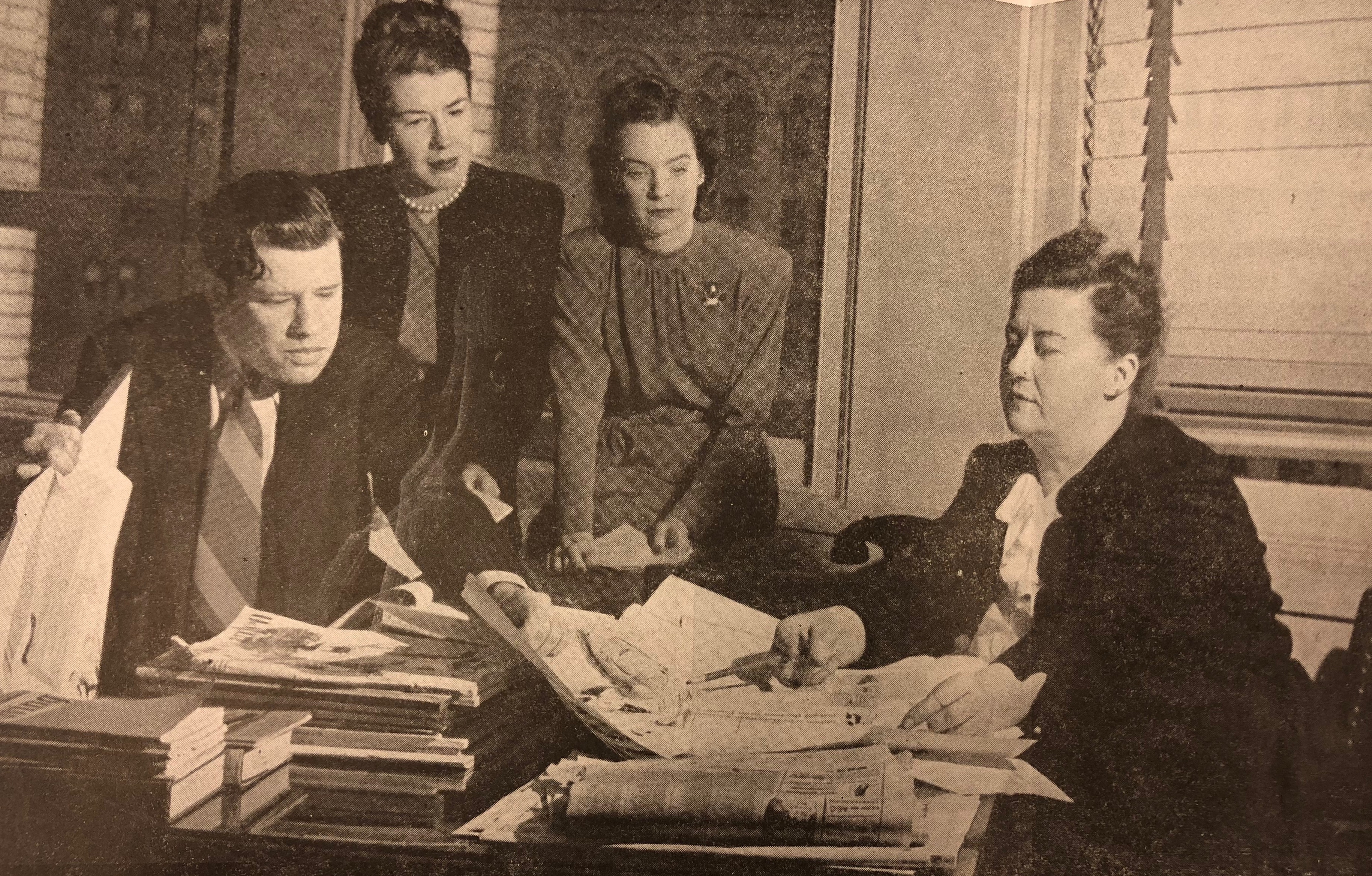As a woman-owned agency, we are committed to fostering women in marketing. To celebrate Women’s History Month, we wanted to take some time to acknowledge the pioneering women who blazed the trail before us and led the way for women in our field.

Mathilde Weil
Mathilde Weil was born in 1878 and defied societal expectations by entering the business world, where women were often relegated to subordinate roles.
Her career took off when she joined J. Walter Thompson Company. Despite facing gender discrimination, she quickly rose through the ranks, becoming one of the agency’s most influential executives. Her keen business insights and innovative ideas propelled her to prominence at a time when few women held positions of authority.
One of her most important contributions in marketing was her pioneering efforts to target female consumers. She recognized the importance of understanding and catering to women’s needs and desires, and developed marketing strategies that resonated with female audiences. She championed the idea that women were not only the consumers but also the decision-makers for many purchase decisions—which was a novel concept at the time.
Weil’s legacy endures as a pioneering leader who challenged existing gender concepts and paved the way for future generations of women in marketing. Her innovative approaches for understanding and appealing to different consumer demographics have left an important mark on the industry, shaping the way brands connect with their audiences to this day.

A.J.Co.(Life time: na (–work for hire for Andrew Jergens Co, Cincinnati), Public domain, via Wikimedia Commons
Helen Lansdowne Resor
Helen Lansdowne Resor was born in 1886 and raised by her mother, who worked as both a librarian and a real estate agent. After graduating high school, Resor followed her mother’s footsteps, entering the working world, which was still unusual in her day. She held several administrative positions before taking her first creative job working as a copywriter for the Commerical Tribune in Cincinnati.
Her career in marketing took a great leap forward when she joined the J. Walter Thompson Company in 1908 as a copywriter, a time when women in advertising were a rarity. Despite the prevailing gender biases, Resor ascended within the agency, eventually becoming its first female vice president. Her ascent shattered glass ceilings and paved the way for future generations of women in advertising.
Resor pioneered the concept of “emotional advertising,” recognizing the power of evoking emotions to forge deep connections with consumers. One of her most notable achievements came with the creation of the iconic Woodbury’s Soap campaign, which featured romantic storylines targeting female consumers—a departure from the conventional product-centric advertising of the time.
Resor was also incredibly important as a woman in business in her era. She actively mentored young female employees, encouraging them to speak their minds, and created a women’s editorial department at J. Walter Thompson.
Her legacy inspires women in marketing by emphasizing the importance of creativity, empathy, and emotional resonance in crafting impactful advertising campaigns that endure.

Scurlock Studio (Washington, D.C.) (photographers)., Public domain, via Wikimedia Commons
Madam C.J. Walker
Madam C.J. Walker, born Sarah Breedlove in 1867, rose from poverty to become one of American history’s most prominent and influential woman entrepreneurs. She revolutionized the beauty industry and forever changed the marketing and advertising landscape.
Walker’s career began with her creation of specialized hair care products for African American women, addressing a pressing need in the market. Through her keen insights and forward-thinking marketing strategies, she built an empire, becoming one of the wealthiest self-made women of her time.
Recognizing the power of personal branding, she adopted the name “Madam CJ Walker” and positioned herself as a symbol of success and empowerment for Black women. She used a wide array of marketing tactics to promote her products and empower other women to achieve economic independence.
Walker’s importance also lies in her role as a pioneer for African American entrepreneurs and women in business. She broke through racial and gender barriers, proving that success was achievable regardless of one’s background or circumstances. Additionally, she was an active philanthropist who supported education and entrepreneurship within the African American community.

not stated, Public domain, via Wikimedia Commons
Christine Frederick
Christine Frederick was a pioneering figure in both marketing and home economics, emerging as a transformative force in the early 20th century.
Her career took off with the publication of her seminal work, “The New Housekeeping: Efficiency Studies in Home Management,” in 1913. Frederick was an early advocate of Taylorism, and in her book, she introduced the idea of applying scientific management principles to household tasks, advocating for streamlined processes and time-saving techniques. Her ideas revolutionized the way households operated, emphasizing efficiency, organization, and consumer convenience.
She also recognized the potential of advertising as an essential tool for educating consumers and shaping their purchasing behavior. Through her columns in magazines and newspapers, she shared practical advice on household management and product selection, effectively bridging the gap between advertisers and consumers. Her 1929 work, “Selling Mrs. Consumer,” brought new focus to the idea of women as the gatekeepers and decision makers for household purchases.

From the Ladie’s Home Journal, Public domain, via Wikimedia Commons
Erma Proetz
Erma Proetz was a distinguished copywriter, agency executive, and leader in marketing in the mid-20thth century and was the first woman inducted into the Advertising Hall of Fame.
Proetz spent the majority of her professional career with the Gardner Advertising Company in St Louis, and her major client was the PET Milk Company. Proetz had a keen understanding of the power of great storytelling and developed a national radio show and personality – the Mary Lee Taylor Program – that was one of the industry’s first “infomercials.” The show shared helpful tips for families and recipes, which, of course, featured PET Milk products.
Her work was so successful that she doubled sales for the company in four years, and as a result was awarded the Harvard Advertising Award three times, the first person ever to do so.

Gus Pasquarella, Public domain, via Wikimedia Commons
Bernice Fitz-Gibbon
Bernice Fitz-Gibbon was an advertising executive and is known for her pioneering work in retail advertising, holding positions at Marshall Field’s, Macy’s, Gimbels and Wannamaker’s over the course of her career. Known for her creativity Fitz-Gibbon’s campaigns were characterized by their wit, humor, and consumer-centric approach.
One of her most notable achievements was the “It’s Smart to Be Thrifty” campaign during the Great Depression. This campaign not only boosted Macy’s sales but also resonated with consumers during a time of economic hardship. She was also responsible for coming up with the “”Nobody, but nobody, undersells Gimbels.” Campaign.
She was known as a tough but inspiring teacher who developed many talented copywriters. With her emphasis on language, her copywriters became highly sought after in the industry. At Gimbels her creative sessions became known as “Fitzkriegs” – “a blitz of words springing from the rapier-sharp and highly imaginative brain of Miss Fitz-Gibbon.”
Bernice Fitz-Gibbon’s was inducted into the Advertising Hall of Fame, and was ranked #62 in Advertising Age’s “People of the 20th century”.

Wells Rich Greene, CC BY-SA 3.0, via Wikimedia Commons
Milton Glaser, Public domain, via Wikimedia Commons
Mary Wells Lawrence
Mary Wells Lawrence is one of the most influential women in the history of advertising. She was the first female CEO of a company listed in the NYSE, she was awarded the Lion of St. Mark at the 2020 Cannes Festival in recognition of her lifetime achievements, and the list of her famous campaigns includes some of the most memorable in the history of advertising.
Her career had successful stops as the fashion advertising manager for Macy’s, a copywriter for McCann Erickson, and a seven-year stint with DDB before finally founding her own agency, Wells Rich Greene, in 1966. Lawrence’s prominence in advertising skyrocketed, and Wells Rich Greene became one of the most successful agencies of its time. Just a few of her memorable campaigns included:
- Plop plop, fizz fizz – Alka-Seltzer
- I Can’t Believe I Ate the Whole Thing (winner of the 1971 Clio Award) – Alka-Seltzer
- I ♥ N Y
- Trust the Midas touch
- At Ford, Quality is Job 1
- Flick your Bic
- Raise your hand if you’re Sure – Sure deodorant
These campaigns drove sales and became mainstays in popular culture that are still referenced today. As the first female CEO of a major advertising agency, she shattered gender norms and paved the way for women in leadership roles in the industry. Her contributions to the industry transcended gender barriers. They reshaped the way brands communicate with consumers, solidifying her status as one of the most important and influential women in the history of marketing and advertising.
BARBARA GARDNER PROCTOR
Born and raised in rural Black Mountain, NC, a town without paved streets, running water, or electricity, Proctor went on to be the first African American woman to own and operate an advertising agency when she founded Proctor and Gardner in 1970. “Back then, the only things black girls could aspire to be was a hairdresser, a teacher, or a nurse,” Proctor told the Tribune in 1981. With degrees in both English and Psychology, Gardner began her career writing liner notes and publicity material for Veejay Records and as a freelance jazz critic for DownBeat magazine.
After being fired from the North agency for refusing to work on a campaign that she felt was demeaning to the Civil Rights movement, she founded her own agency, Proctor and Gardner Advertising, which quickly became the second-largest African-American advertising agency in the US. She said “It became quite apparent to me that if I did not begin to control my own destiny, I was going to have it changed about every five years.”
Proctor’s significance lies not only in her entrepreneurial spirit but also in her innovative approaches to marketing. She understood the importance of diversity and inclusion in advertising long before it became a mainstream concept. Proctor advocated for authentic representation of minorities in advertisements, challenging the industry norms and reshaping the way brands communicate with diverse audiences.
Tere Zubizaretta
Born in Cuba in 1937 and displaced by the Castro revolution, Zubizarreta began her career in advertising as a secretary with no college education, she worked her way through numerous departments. She eventually founded Zubi Advertising Services in 1976 with one phone and a borrowed typewriter.
Zubizarreta was instrumental in recognizing the growing importance of the Hispanic market in the United States. She understood the nuances of Hispanic culture and consumer behavior and advocated for culturally relevant advertising campaigns that resonated with this audience believing that stereotypes were one of the biggest obstacles to participating in the American Dream.
Under Zubizarreta’s leadership, Zubi Advertising Services became a trailblazer in multicultural marketing, helping brands navigate the complexities of reaching diverse audiences. She also became a respected voice and thought leader in the industry. She was instrumental in promoting diversity and inclusion within the advertising world, advocating for greater representation of minorities in leadership positions.
Zubi Advertising remains one of the largest privately held and minority-owned advertising agencies in the United States.
Caroline Robinson Jones
Like many others on this list, Caroline Robinson Jones began her career as a copywriter at J Walter Thompson, eventually becoming the agency’s first African American creative director. She subsequently left to found a series of successful advertising agencies including Zebra Associates, Mingo-Jones, and finally her own Caroline Jones Advertising.
She was instrumental in developing agencies that specialized in targeting African American audiences, and helped many major brands with their first attempts to cater their advertising to the needs and preferences of the demographic. Her commitment to amplifying diverse voices and perspectives serves as a beacon of progress, reminding us of the importance of inclusivity in shaping impactful and culturally resonant advertising campaigns.
While Jones’s life was tragically cut short by breast cancer at the age of 59 in 200, her legacy will continue to inspire young women and African Americans in the advertising world.
Discover the inspirational women in marketing who’ve made a lasting impact on our industry. Explore our staff’s curated selection of pioneering figures and their remarkable contributions, celebrating their legacy and influence all year round.





![How are Mobile Advertising and Out of Home Media Aligned? [Infographic]](https://www.emcoutdoor.com/blog/wp-content/uploads/2017/12/mobile-ooh-info.jpg)
